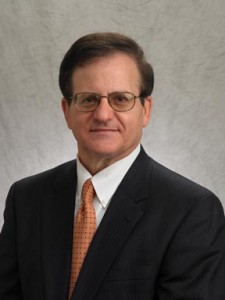By Matt Sinclair ’90

Rick Lettieri '69
Today, Rick Lettieri ’69 focuses his law practice on the discipline he foretold more than 25 years ago. As founder of Lettieri Law Firm, LLC, in Pittsburgh, Pa., he is an electronic discovery counsel and a pioneer in this evolving legal field.
Lettieri first glimpsed the current sea change in legal discovery during his 17-year tenure at IBM in a variety of technical and consultative positions.
In his book The Corporate Counsel’s Guide to In-House Legal Systems, published in 1990 and recognized with a certificate of appreciation from the American Bar Association in 1991, he opined that electronic communication would transform legal discovery.
In 2008 only six of the 200 largest firms in the country included e-discovery in their practice. By 2010 that number climbed to 87, according to a study by Cowen Group.
A philosophy graduate, Lettieri earned a master’s in political science and a JD from Duquesne University.
E-discovery has grown quickly, not only because of email and other electronic social media but also the huge volume of electronically stored information involved in litigation and the changes in the Federal Rules of Civil Procedure (FRCP) that require attorneys to obtain a level of familiarity with their clients’ data retention systems. They are required to locate and preserve information potentially relevant to the claims and defenses presented in a case.
“This development has created an electronically stored information skill gap between large firms and the mid-size and small firms that lack in-house e-discovery skills and experience,” says Lettieri. “The exponential increase in data volumes and the federal rules changes were bound to impact smaller and smaller cases and firms, and that is what has happened.”
For firms that lack the expertise, e-discovery counsel, like Lettieri, fill the gap. He has authored or co-authored numerous scholarly articles and is a featured speaker on the subject.
E-discovery attorneys possess the technical and legal knowledge and experience to provide advice to legal teams during the e-discovery process. They are consulted by lawyers who need someone to resolve these complex issues. They also are sought by judges as “e-discovery special masters” to act on behalf of the court to resolve issues and by others to resolve e-discovery disputes through mediation.
Last year, Lettieri was instrumental in creating the first e-discovery special master program. Established in U.S. Court, Western District of Pennsylvania, it provides federal judges with the capability of resolving some of the more complex legal and technical issues and provides an incentive for counsel to resolve issues cooperatively, explains Lettieri, who co-chaired the committee appointed by federal judges.

1 Comment
Comments are closed.